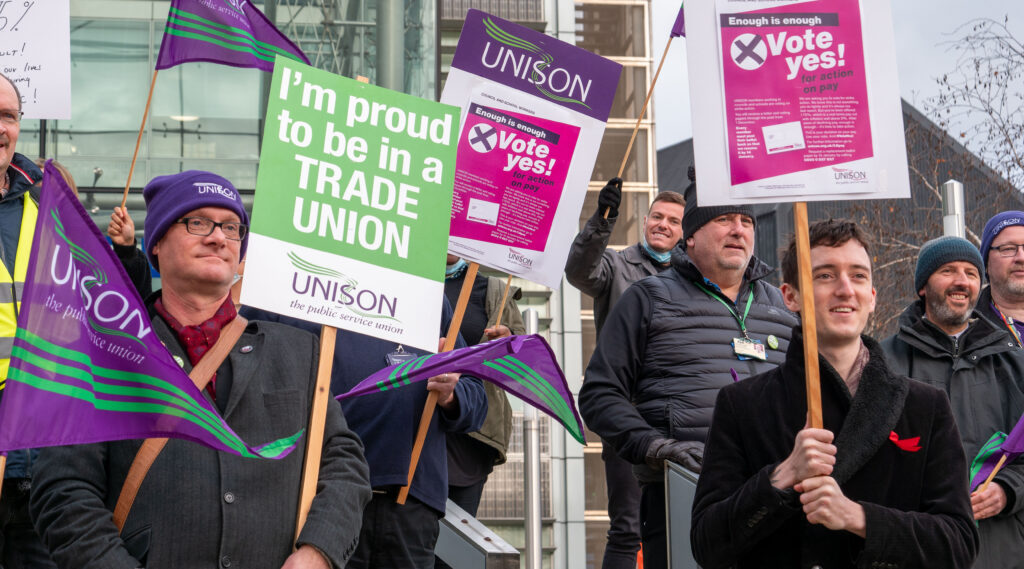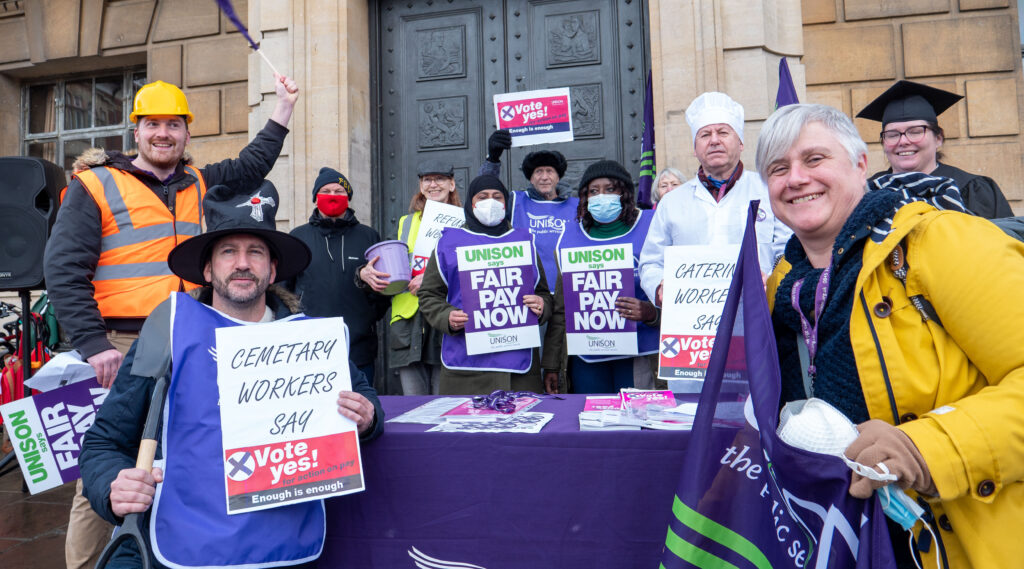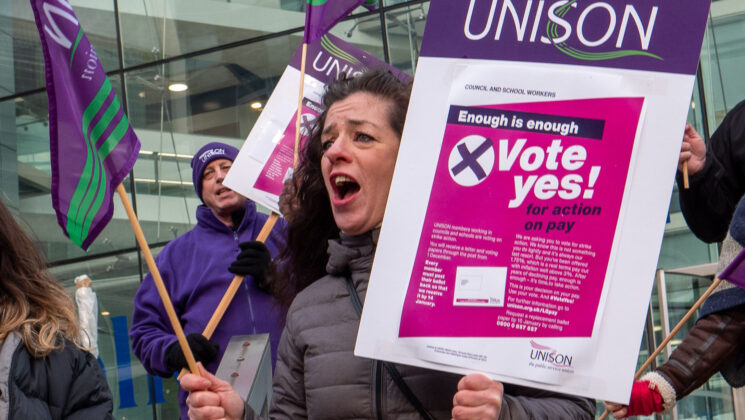This has been a whirlwind week, with finalising the preparations for our local government strike ballot, a pair of lively rallies of council and schools workers pushing for more pay and now the honour of filling Tim’s shoes to write this week’s blog.
It’s been inspiring seeing our Eastern region activists grab the nettle and campaign for their pay. It’s new territory trying to organise a strike ballot when council offices are half-empty but already a couple of days into the vote we’re seeing innovative approaches to campaigning.
From traditional stalls to online meetings to getting out the message on Yammer, we’re doing everything we can to get local government staff engaged and voting.
They’ve got plenty of reasons to vote. The value of pay is now 25% lower than it was in 2010. Instead of dress-down Fridays, council and school staff are doing pay-down Fridays, working the end of the week for free.

And this after the hardest couple of years in memory. Local government workers maintained the fabric of our society during the pandemic, emptying our bins, caring for our relatives, looking after our kids, providing housing and delivering the myriad vital services we rely upon.
They were the keyworkers that we clapped every Thursday. They were lauded as heroes by the government, by employers and by the public. But the applause is ringing as empty as our pockets: the employers are offering a miserly 1.75%. The handful of staff on the lowest pay points are getting 2.75% but that will only just keep pay in line with the new minimum wage rates.
None of it is anywhere near the 10% we asked for and even that would leave pay behind where we are before the coalition government. Unless the situation improves the skilled workers delivering local services will simply look elsewhere for a wage they can live on.
We know staff aren’t happy about this, they’ve voted four to one in an indicative ballot to reject the offer and move to a full poll on strikes. But we also know we’ve got a mountain to climb if we’re going to take the action we need to squeeze more money out of Boris Johnson and Rishi Sunak.

Thanks to the Tories’ anti-union laws we need to reach a turnout of 50% to take action. If these restrictions were applied to the councillors staff worked for we’d be left with empty council chambers: average turnout for English councils hasn’t topped 35% since 2015 when the local elections coincided with the Westminster polls.
The Local Government Association employers’ body chair James Jamieson, a councillor in Central Bedfordshire, would be without his seat – 43% of his ward turned out in 2019.
But these barriers should only make us more determined. Every branch, every activist, every UNISON member must do their part.
We’re campaigning under the slogan “enough is enough.” It couldn’t be truer. Now is the time to stand up for council and school pay. The future of our local services depends on it.

